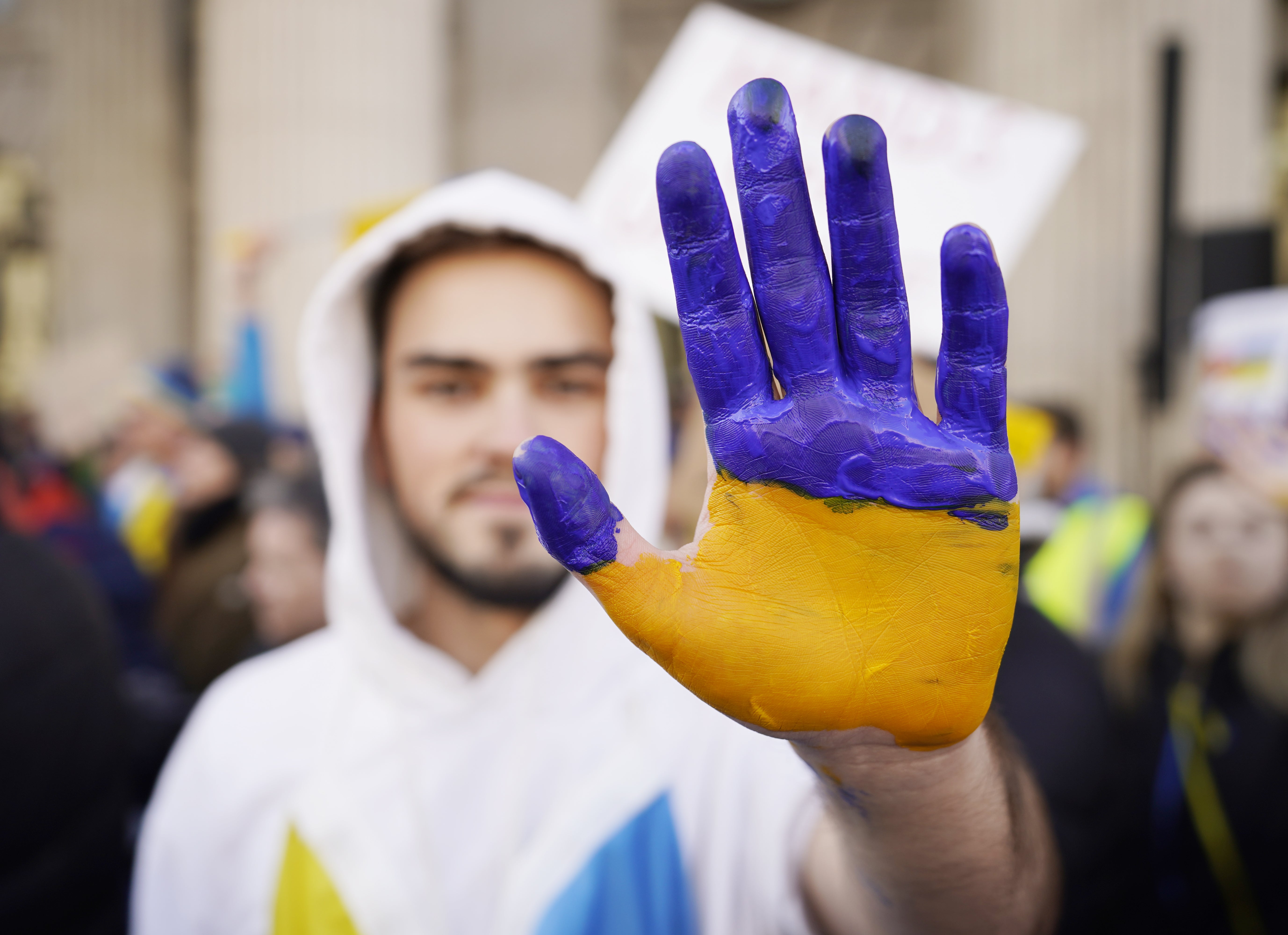More than 80,000 Ukrainian refugees could arrive in Ireland, minister says
Preparations are under way to accommodate the significant number of people due to arrive in the country in the coming days and weeks.

Your support helps us to tell the story
From reproductive rights to climate change to Big Tech, The Independent is on the ground when the story is developing. Whether it's investigating the financials of Elon Musk's pro-Trump PAC or producing our latest documentary, 'The A Word', which shines a light on the American women fighting for reproductive rights, we know how important it is to parse out the facts from the messaging.
At such a critical moment in US history, we need reporters on the ground. Your donation allows us to keep sending journalists to speak to both sides of the story.
The Independent is trusted by Americans across the entire political spectrum. And unlike many other quality news outlets, we choose not to lock Americans out of our reporting and analysis with paywalls. We believe quality journalism should be available to everyone, paid for by those who can afford it.
Your support makes all the difference.The number of Ukrainian refugees arriving in Ireland could exceed 80,000, a government minister has confirmed.
James Browne, minister of state in the Department of Justice, said the exodus of people from Ukraine was on a scale not witnessed in Europe since the end of the Second World War.
His comments came as the UN announced that more than 1.5 million people have now fled Ukraine since the Russian invasion.
The updated estimate on the number of refugees expected in Ireland comes amid government efforts to bolster domestic grain production in response to the anticipated significant disruption of supply lines from Ukraine and Russia.
Agriculture Minister Charlie McConalogue is to meet with farmers’ representatives on Tuesday to develop a plan that could potentially see all Irish farmers sow crops in the forthcoming growing season.
Hundreds of Ukrainians are already arriving in Ireland every day as they flee the conflict in their homeland.
Around 1,400 have entered the country thus far, though many of those are staying with relatives who already lived in Ireland.
Government ministers are examining a variety of options to accommodate the unprecedented number of further arrivals.
We are now potentially looking at 80,000-plus, there is not going to be any cap on those numbers coming into this country
The use of modular homes on state land is being explored and members of the public will also be asked to volunteer to host refugees.
“The last time we’ve seen a kind of movement like this, to this degree in Europe, was at the end of World War Two when we saw a huge movement of German people who became refugees at the end of that war,” Mr Browne told RTE’s The Week in Politics programme.
“We haven’t seen anything like this since then.
“Now we have learned a lot over recent years in terms of dealing with the pandemic that we do know we have that capacity and that generosity and capability within a country to mobilise when we need to in the face of a very, very serious situation.
“But we are now potentially looking at 80,000-plus, there is not going to be any cap on those numbers coming into this country.”
Anti-war protests continued in Ireland over the weekend.
On Sunday, crowds again gathered outside the Russian embassy in Dublin to denounce the invasion and call for the expulsion of Russia’s Ambassador to Ireland Yuri Filatov.